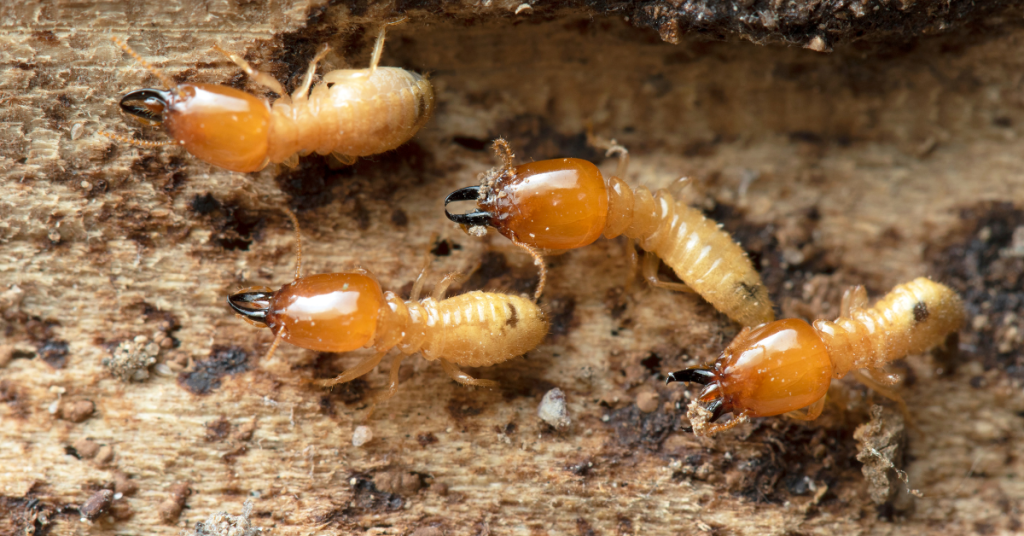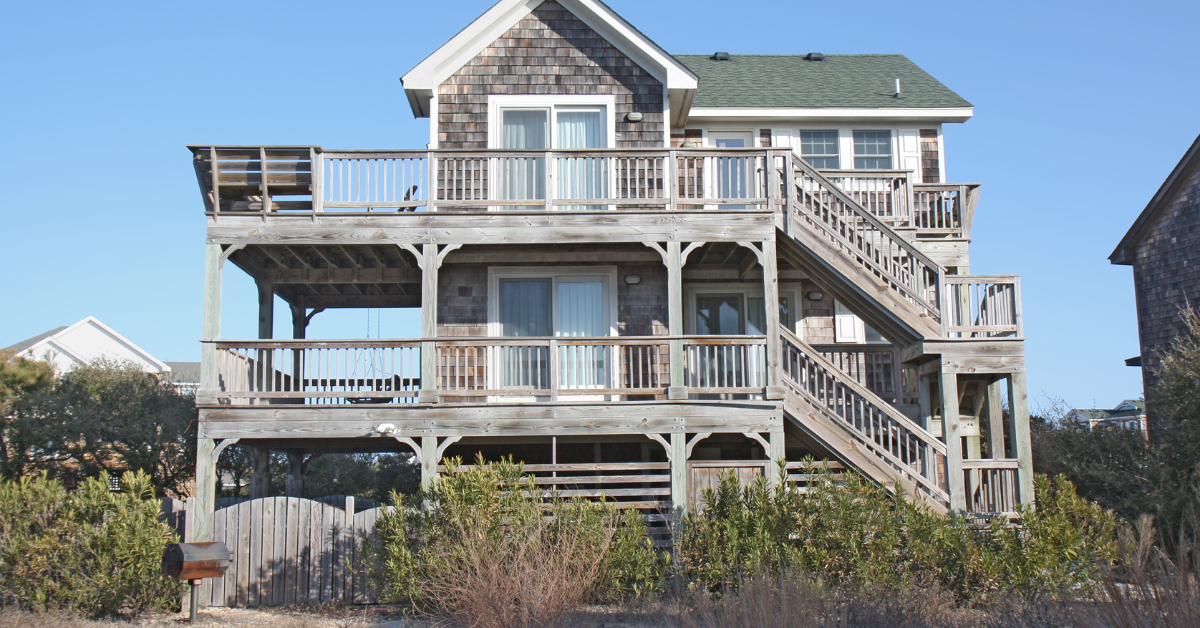
Sentry Termite Control protects your home & business from termite damage in northeastern North Carolina.
Termite Control Guarantee
At Sentry every termite job carries 10 years’ worth of renewable warranty!
We’ll come back under your home each year for a thorough inspection to make sure our work is holding up! Sentry uses the best and most up-to-date materials and methods to exterminate eastern subterranean termites and keep them away for good!


Experience & Expertise
We’ve been doing termite control right for over 50 years. Ask your parents or grandparents about us and they’re likely to tell you that Sentry is the one that does it right and at a fair price.
Termite Pest Control Experts
Sentry Exterminating is your go-to termite control company in North East, North Carolina. With over 50 years of experience, Our team of skilled professionals is equipped with state-of-the-art tools and techniques to detect, treat, and PREVENT an active termite infestation in your home or business.
We understand the destructive nature of termites and the importance of swift action to minimize damage. At Sentry Exterminating, we provide a customized termite treatment plan that is safe, effective, and affordable. Choose Sentry Exterminating for reliable termite control services that deliver results.
Average termite treatment costs depend on the size of your home or office buildings and the severity of the termite infestation. Get a Free Estimate Today!

Sentry Termite Pest Control
The best way to prevent a termite problem is with regular termite inspections to identify problems and termite treatments that keep a protective barrier around your home or office!
Termite Colonies live underground and come up through “mud tubes” to eat wood products homes are built with. Sentry Exterminating gives you peace of mind, knowing that your home is protected year-round with regular Termite Control services.
Termite Control Service Areas
Delivering GUARANTEED Termite Control in Williamston, Roper, Plymouth, Edenton, Columbia, Washington, Greenville, Pantego, Swan Quarter, Engelhard & surrounding areas!
Termite Inspections
The first step to termite control is an inspection! Termites are one of the worst pest problems, Sentry is here to protect your property, and give you peace of mind!
Termite service starts with an annual termite inspection around and under the house.
Sentry Termite Pro’s give you an inspection report including type of termite, and any termite treatment costs. After termite control treatment, the inspection fee is deducted from the total cost as a free inspection.
Annual termite inspection PREVENT substantial termite damage by catching problems before they get out of hand! In North East North Carolina we have more than our fair share of Termites! Termites thrive in moist soil, and rain, leaky pipes, bad grading, and moisture control problems all contribute to termite infestations.
Sentry provides a free termite inspection with each Termite treatment. Termite Warranty Renewals PREVENT termite problems for $200 a year (average price) with regular termite inspections! (Price depends on square footage and crawl space conditions.)

Real Estate Transactions
Sentry Exterminating provides Termite Inspections and written reports to real estate transactions for potential buyers at the affordable fee of $225. each. Costs for termite exterminators to treat if needed is provided but not required.
Integrated Pest Management for Termite Control
Termite problems can be avoided and controlled to a point with common sense solutions, like a free termite inspection, moisture control in crawl spaces, and proper soil grading.

Satisfaction Guarantee
We aren’t happy till you’re happy! If you ever have a pest issue between regular services, we want to know! Give us a call and consider it done… Our customer service team will get you scheduled with pest control specialists right away!
Types of Termites
- Eastern subterranean termites (Reticulitermes flavipes): This is the most common species of termite found in North Carolina, including in the Northeast region. These termites live in large colonies in the soil and feed on wood and other cellulose-based materials.
- Formosan subterranean termites (Coptotermes formosanus): This is an invasive species of termite that has been found in some areas of North Carolina, including in the Northeast region. They are known for their aggressive behavior and ability to cause significant damage to structures. Severe termite infestation is usually due to Formosan termites who cause extensive damage.
- Drywood termites (Incisitermes snyderi): These termites live inside the wood they infest and do not require contact with soil. They are less common in Northeast North Carolina, but can still be found in the area.
- Dampwood termites (Zootermopsis angusticollis): These termites are less common in North Carolina, but can still be found in some areas, including in the Northeast region. They require high moisture content in the wood they infest and are typically found in areas with damp or decaying wood.
Termite Control with Slow-Acting Insecticide
Slow-acting termiticides are often the preferred treatment options because they allow time for the termites to spread the termiticide throughout the colony, which can lead to more effective elimination of the entire termite colony.
One example of a slow-acting termiticide that is commonly used for termite control is fipronil. Fipronil is a non-repellent termiticide that is undetectable by termites and can be transferred from termite to termite, eventually leading to the elimination of the entire colony. Fipronil is a liquid termiticide that is applied to the perimeter of your home and crawl space areas to eliminate termite infestations.
Another slow-acting termiticide that is commonly used is hexaflumuron. This termiticide disrupts the termites’ ability to molt, which eventually leads to their death. Hexaflumuron is also transferred from termite to termite, which allows for the entire colony to be eliminated.
Termite Infestation Threats
Active termite infestations pose a significant threat to homes because termites can cause extensive damage to the structure of the home, potentially leading to costly repairs or even structural failure.
- Termites feed on cellulose-based materials, like wood, which can weaken the structural integrity of a home. Over time, this can lead to sagging floors, leaning walls, structural damage, and even collapse.
- Termites can also damage the interior finishes of a home, such as drywall, wallpaper, and flooring. This can result in unsightly cracks, bulges, and other damage.
- Termites may also damage electrical wiring, which can create a fire hazard and cause other electrical issues in the home.
- A home with a known termite infestation can be difficult to sell, and may significantly decrease in value as a result.

Complete Termite Protection
Complete termite protection for property owners typically involves a combination of preventive measures and active treatment to eliminate existing infestations.
- Regular inspections: Regular inspections by a licensed pest control professional can help identify any signs of termite activity early on before significant damage occurs. It’s recommended to have an inspection at least once a year.
- Moisture control: Termites thrive in moist environments, so controlling moisture levels in and around the home can help prevent infestations. This includes fixing leaky pipes, ensuring proper drainage around the home, and using a dehumidifier in damp areas like basements and crawl spaces.
- Professional Termite Treatments: Termite control professionals apply active ingredients to the soil around the home to create a barrier against these wood-destroying organisms. This can include slow-acting termiticides that are transferred from termite to termite, or fast-acting liquid termiticides that kill wood-destroying insects on contact
- Bait systems: Termite baits use a combination of slow-acting termiticides and bait to attract and eliminate termites. Bait stations are placed around the perimeter of the home and are regularly monitored and replenished by a pest control professional.
Sentry’s licensed pest control professional develops a termite protection plan tailored to the specific needs of your property. Regular inspections and ongoing treatment can help ensure that your property remains termite-free and protected from future infestations.
Termite Control for New Construction
New construction can benefit from termite control measures to prevent termite infestations before they begin. Even though new construction may not have signs of termites, it’s important to take preventative measures. Termites can quickly establish a colony causing significant damage to homes.
- Soil Treatment: Pre-treatment of the soil before construction creates a barrier against termites and prevents them from entering the home. This involves applying a termiticide to the soil around the foundation of the home before the concrete is poured.
- Termite-resistant Materials: Using termite-resistant materials, such as pressure-treated lumber, helps prevent termites from feeding on the structure of homes.
Protect your new construction from termite damage… And prevent costly repairs in the future with Sentry’s licensed pest control professionals who deliver comprehensive termite control for new construction projects.
Sentry Exterminating is a local family-owned pest control company.
